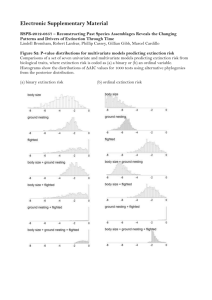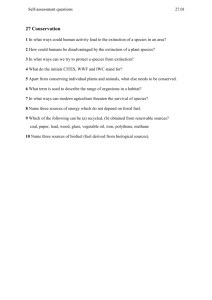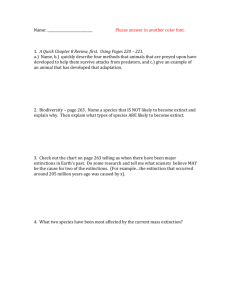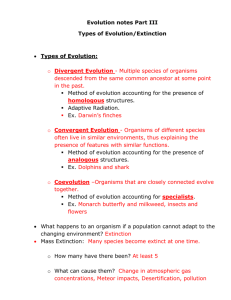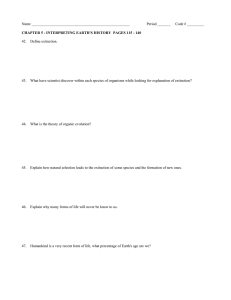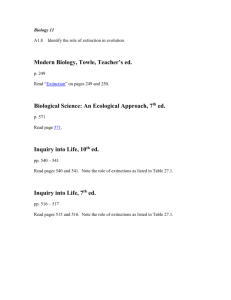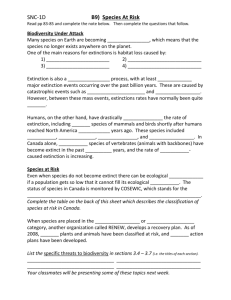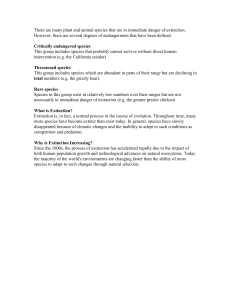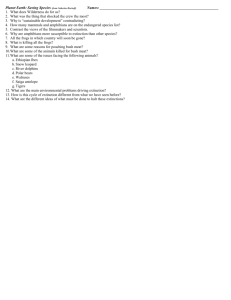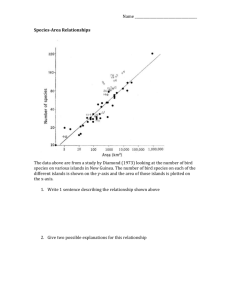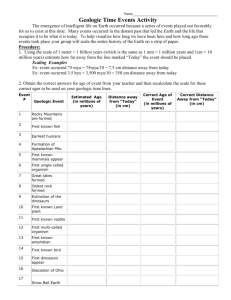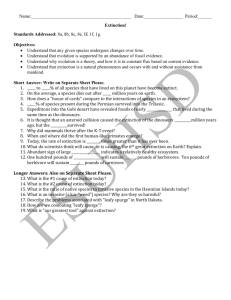Figure S1
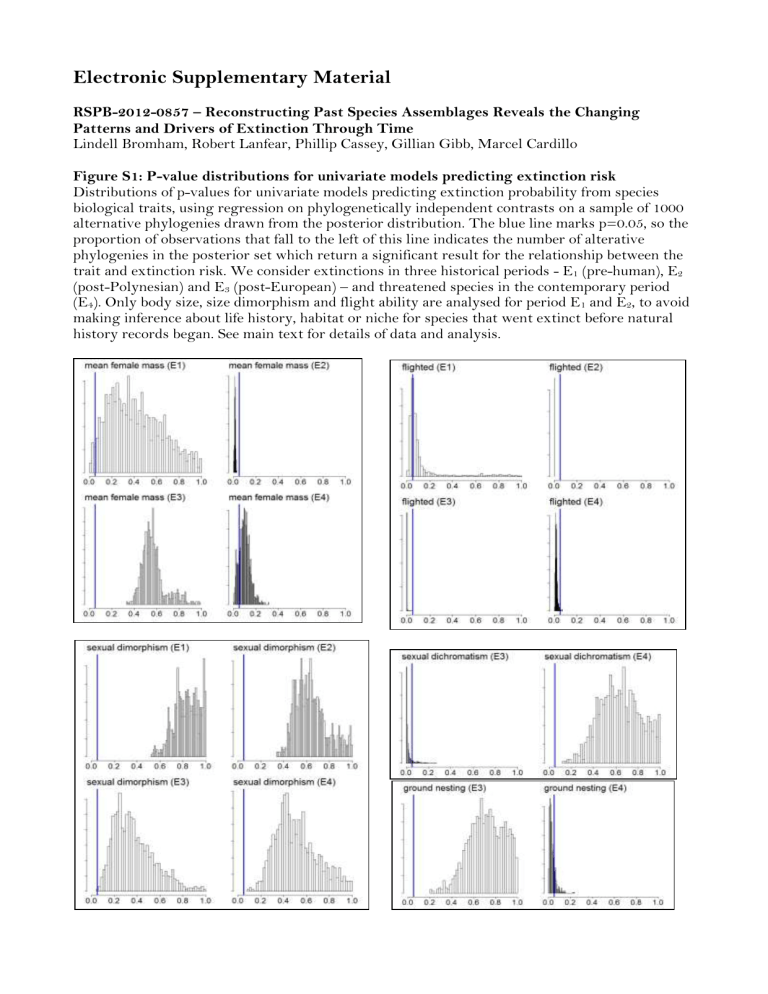
Electronic Supplementary Material
RSPB-2012-0857 – Reconstructing Past Species Assemblages Reveals the Changing
Patterns and Drivers of Extinction Through Time
Lindell Bromham, Robert Lanfear, Phillip Cassey, Gillian Gibb, Marcel Cardillo
Figure S1: P-value distributions for univariate models predicting extinction risk
Distributions of p-values for univariate models predicting extinction probability from species biological traits, using regression on phylogenetically independent contrasts on a sample of 1000 alternative phylogenies drawn from the posterior distribution. The blue line marks p=0.05, so the proportion of observations that fall to the left of this line indicates the number of alterative phylogenies in the posterior set which return a significant result for the relationship between the trait and extinction risk. We consider extinctions in three historical periods - E
1
(pre-human), E
2
(post-Polynesian) and E
3
(post-European) – and threatened species in the contemporary period
(E
4
). Only body size, size dimorphism and flight ability are analysed for period E
1
and E
2
, to avoid making inference about life history, habitat or niche for species that went extinct before natural history records began. See main text for details of data and analysis.
